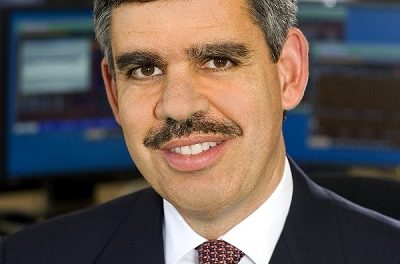
The disease of a bad legacy becomes the ‘geist’ that heists the organisation

By Natasja Beyleveld, Managing Director of NaMedia.
Don’t let us fa(i)ll! Have you ever said this to your CEO? You are most welcome to.
Regardless of ‘what it takes to be a good CEO’, there are other factors that play a role in shaping popular and dominant public perceptions about the CEO, and the company represented by the CEO.
The Academic Society for Management and Communication (Joachim Schwalbach at the Humboldt University of Berlin), conducted the world’s largest study on the reputation of CEOs and companies. In short; the CEO’s reputation had a much more powerful impact on the company’s reputation than expected – in a few cases up to 70% . In addition to the impact of the CEO, the company’s reputation was profoundly influenced by the following factors; customer orientation, quality of products and services, as well as its capacity for innovation.
Think about companies in the telecommunication and financial industries (banks, insurance, auditors, micro-lenders, et cetera); do you need good service and facilities, or a good image of the CEO?
I would expect both as the background, ability, and leadership capabilities of, for instance, Baronice Hans (MD of Bank Windhoek), changes the way not only I perceive the bank, but the achievements of the bank naturally become a reflection of the leadership, which I might add is exceptional.
Thinking about Transnamib, I honestly don’t think about their CEO. My first reaction is; it’s a parastatal and their books look really bad, and ‘important decisions’ have reflected poorly on their leadership. The first three google attempts failed. I read about various fails, attempts, fails,
“Transnamib CEO to be appointed soon” (The Namibian, 2017) “Transnamib in ICU – CEO” (Windhoek Observer, 2018), “Transnamib infighting opens can of worms” (Windhoek Observer, 2018) [I’m still confused, I see a vacancy, I see their website, I see nothing], and “Transnamib must grow own business says new boss” (Namibia Sun, 2018).
Call it politics, red tape, failing of communications, lack of transparency and ownership – whatever you want; it’s not making it better (yet). The disease of a bad legacy becomes the ‘geist’ that heists the organisation. This becomes congruent with expectations for failure which is intrinsically sad. We are let down, and we become more sceptical (rather realistic), almost endorsing these cycles that lack ongoing change to be relevant to a competitive business environment.
A CEO’s reputation depends above all on their strategic competence, credibility and communication skills. Not a suit and tie, expensive handbag, after-hours, forever-meetings, and VIP contacts. There is a lot of humility in being a good CEO; the best ones are so very much ‘part of the team’, that they have unmistakably become part of the mission, the army in the war, and they rightly share in the team’s victory. The title is only to have won trust and respect.
They constantly surround themselves with people that (still) know more than they do, and they’re the top student in class (they learn). In the CEO study; assertiveness and role modelling ranked in the middle ‘of relevance’. We could fake it until we make/not make it; but similar to the earth – it’s what’s at the ‘core’ of the CEO that makes for a hardcore leader that succeeds as an individual and succeeds as a company.
Interestingly, the study found that the social commitment of a CEO and her/his abilities as a team player bore almost no influence. Again, we can learn from this in that it’s about the product and parcel, not about the ‘by-products’ so to speak.
Corporate social responsibility projects carry absolute value but in the end they won’t ‘save’ a bad reputation (on its own). CSR/I projects that are aligned with the country’s growth goals might add momentum in recovery or maintenance of a grounded reputation. It’s like investing into the savings account to ‘draw from in times of crisis’, but it is not a band aid that could heal unsustainable practice or bad leadership.
So the take-away for today – the investment effect takes place (CEO Study): investing in reputation-building image campaigns and professional reputation management do not increase the value of the company in the short-term, but often only in the medium-term from which the legacy unfolds. The core and the value of the CEO are represented in the stakeholders and their confidence and trust in the brand. There are times with tailwind and there are times for tsunamis. And in the end, I would say that the CEO bears influence to stakeholder’s willingness to ‘stick around indefinitely’, or as far as is reasonable and being well-informed. The CEO with the ability to separate BS from Brilliance, will get the job done.










































